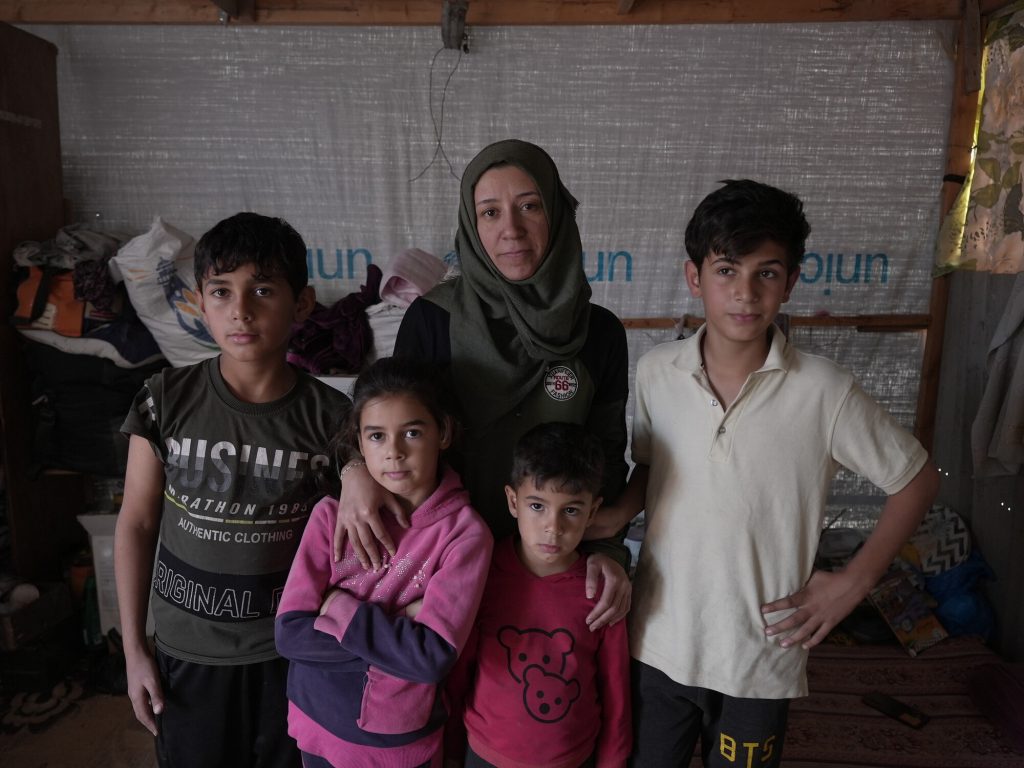My Children are my strength
by Dorah Ntunga
Last December, Nyakuoth was living happily in South Sudan, with her husband and five children. At 27 years-old, one of Nyakuoth’s wishes was to one day visit Uganda—little did she know she would soon end up there as a refugee.
“I was home with my whole family when fighting broke out in Unity state. My husband ran away because he heard—that as a government soldier and a Nuer—he was a key target for killing. He just told me to take the children and run. I felt helpless and abandoned because I did not know how and where to run with all the children.”
As Nyakuoth was contemplating what to do, she heard heavy gun shots and realized she had no time to think.
“I got my children, carried the two young ones, and we started running. When tired we walked until we got to Juba. It was one of the most difficult journeys—with the children so tired and hungry.”
Still feeling unsafe in Juba, Nyakuoth decided to take a truck toward the Uganda border. “All this time I was thinking about my husband and whether he was safe—but at the same time I was bitter that he left us just like that.”
Nyakuoth is now in the refugee settlement of Agulupi, a place that will take time to adjust to—she’s gone from owning a garden of food and having a decent house to relying on aid and sleeping in open air.
In Agulupi, Nyakuoth enrolled in Oxfam-partner CEFORD’s short-term employment program. “I knew I had to survive for the sake of my children so I enrolled and started working on opening up an access road within our settlement. Working for 3 hours in the morning leaves me with time and energy to attend to my business and cook for my children”
The money Nyakuoth earned from working 3 hours a day helped provide a decent shelter for her family. Determined to see her children go to school like they did back home, she longed for more. “I saved up the little money and later acquired poles and grass, and erected a kiosk where I now sell merchandise like onions, sugar, salt, soap, and cooking oil.”
Nyakuoth has been running her business for a month and happily boasts of a healthy income—with both refugees and nationals as her customers.
Despite the difficult situation, Nyakuoth feels her life is much better than other refugees who are relying entirely on handouts for survival. The desire to protect her children drives her—because of this, she is not sure she is ready to go back home soon. “I am not ready to watch my children run. Unless there is total peace then I cannot go back.”
Nyakuoth’s is worried her kiosk is not strong enough to withstand the coming rains, but her biggest fear is the fate of her husband. “I don't know whether he is alive or dead, I just pray for him—and for the fighting to stop.”
Background
Oxfam, working with partner CEFORD, is providing short-term employment to both refugees and host communities to help ensure that they can earn small amounts of money to meet basic needs. Oxfam’s cash-for-work programme includes basic construction tasks like clearing access roads and digging waste pits. This work is carried out based on a selection criterion that is gender sensitive ensuring that the work does not become a burden to those carrying it out. As newly-arrived refugees work alongside host community members, the initiative helps to minimize conflict between the different groups, and improves the infrastructure that they all share.
To date, over 2,800 people have benefitted from Oxfam’s cash-for-work activities. Oxfam and partners also train and distribute tools and seedlings to the refugees and host communities to enable them establish gardens to supplement their diet and sell for income. We are also meeting the Water Sanitation and Hygiene needs of the refugees and their hosts. In all, Oxfam is engaged in national, regional and International advocacy in order to encourage peace building and reconciliation.
Dorah Ntunga is Information, Media & Communications Officer with Oxfam in Kampala, Uganda.

